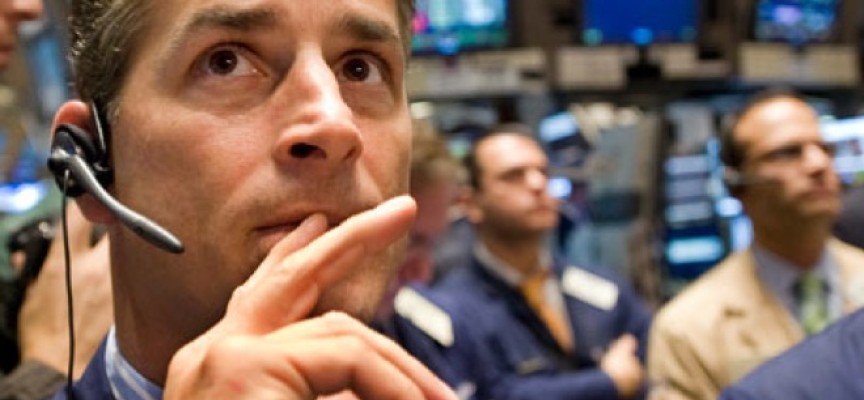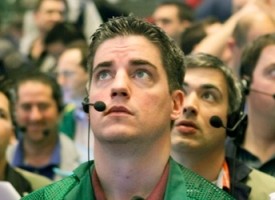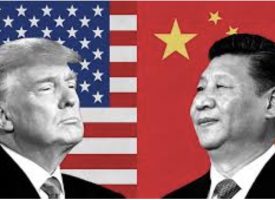With the Dow near 18,200, crude oil still below $50 and gold on the move, today a legend in the business sent King World News a powerful piece warning about one of the greatest threats to the world that would violently impact every major market and individual around the globe.
From Art Cashin's notes: "Stagnant Reserves – In his most recent "Thoughts From The Frontline", my good friend, John Mauldin, touches on the anomaly that has frustrated the Fed in trying to get the economy kicking in. It is the velocity of money – or, more correctly, the non-velocity of money in today's economy. Here's a bit from John's note:
Yet the US monetary base has expanded significantly, and there has been no real increase in inflation, and the dollar is actually getting stronger. “So what’s the problem?” Mr. Krugman asks. Inflation is brought about by not just an expansion of the monetary base but also by a stable, concurrent rise in the velocity of money.
It’s complicated, I admit. I have devoted more than a few letters to the concept of the velocity of money. The current period of low inflation has been caused by a rather dramatic fall, over the last eight to ten years, in the velocity of money. As I predicted almost five years ago, the Federal Reserve was able to print far more money than anyone could imagine without the threat of inflation rearing its head.
The problem is that the velocity of money is a very slow-moving statistic. It is what we call mean-reverting, in that the velocity of money can’t rise to the heavens unless you have a Weimar Germany-type situation, and it can’t fall to zero. It oscillates over long periods (think decades) around an average or mean.
Right now the velocity of money is falling, which allows the US Fed to have a very loose monetary policy without having to worry about inflation. When the velocity of money begins to rise, the Fed will have to lean against what could quickly turn into soaring inflation with a tighter monetary policy than it otherwise would have, because of its recent, extreme episodes of quantitative easing. Think Paul Volcker in the early ’80s, turning the screws on 18% inflation. That was not exactly a fun time.
Of course, economists think that we can avoid any big mistakes. But sadly, there is no such thing as a free monetary lunch. Today’s quantitative easing (in a period of reduced velocity of money) will mean tomorrow’s much tighter monetary policy – or much higher inflation. Or both.
Art Cashin continues: If the velocity of money were to pick up, the Fed would be in a very precarious position. They might have to raise reserve requirements, which could be like taking a two by four to the economy. Maybe we'll explore more on the topic next week.
Consensus – Lots of rebalancing on the bell. Watch action in oil. Last day of month brings adjustments and rumors of large asset swaps. Stay wary, alert, and very, very nimble. Have a wonderful weekend! ***ALSO JUST RELEASED: Is This The Most Terrifying Interview Of 2015? CLICK HERE.
© 2015 by King World News®. All Rights Reserved. This material may not be published, broadcast, rewritten, or redistributed. However, linking directly to the blog page is permitted and encouraged.
The audio interviews with Michael Pento, Gerald Celente, David Stockman, Marc Faber, Eric Sprott, Felix Zulauf, Andrew Maguire, John Mauldin, Egon von Greyerz, Dr. Paul Craig Roberts, Lord Christopher Monckton, Bill Fleckenstein, Dr. Philippa Malmgren, Stephen Leeb, John Embry and Rick Santelli are available now. Other recent KWN interviews include Jim Grant — to listen CLICK HERE.







